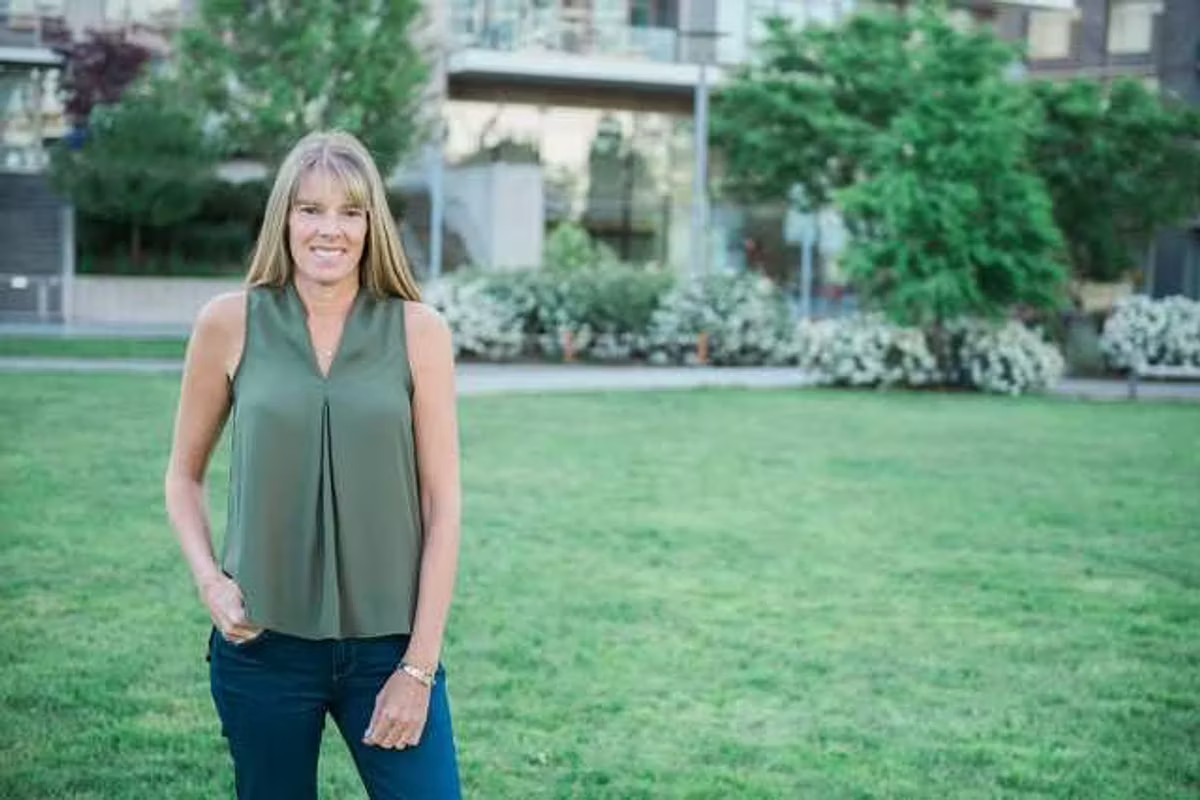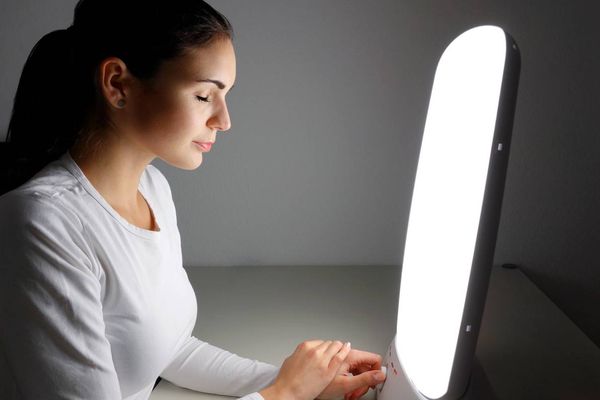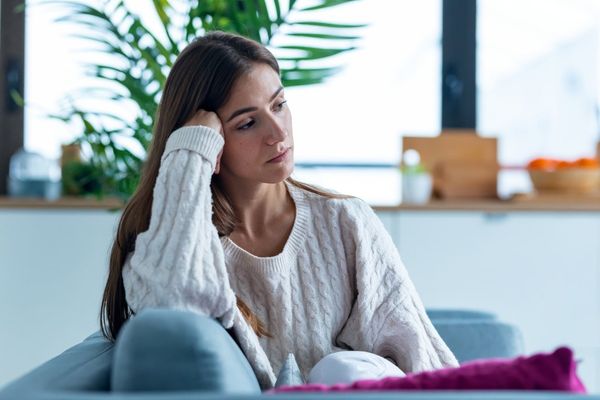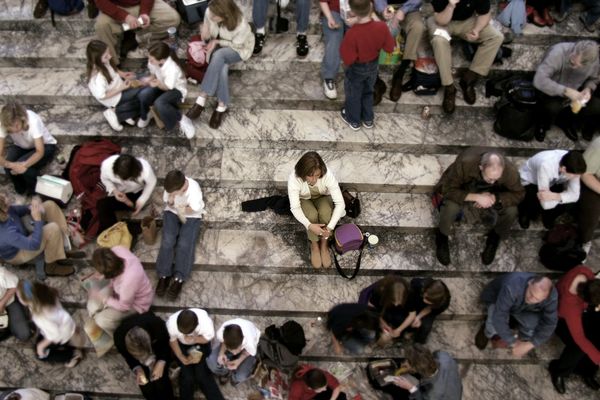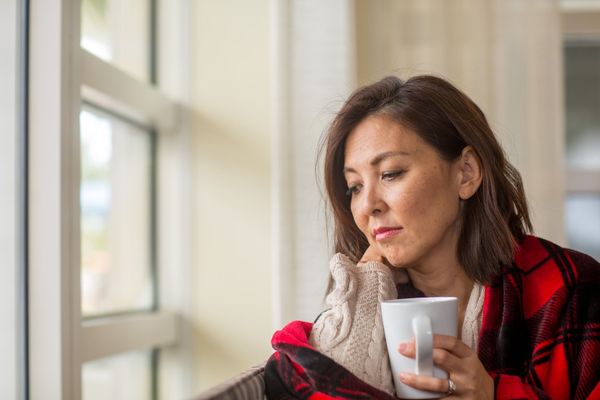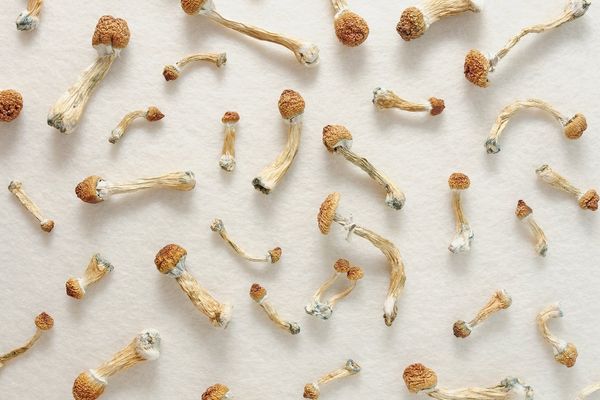As told to Nicole Audrey Spector
October 10, 2025, is World Mental Health Day.
I was the third of four children, each four years apart, and the only female. That last part wasn’t a good thing in my family. Girls, I was taught, were dumb. In my home, there was a hateful mantra directed at me: “Don’t be a dumb girl.” My family would shorten it to an acronym, “DBADG.” Anytime I did something that made me look feminine or weak, I’d hear those letters.
My dad was an intensely angry man and was both physically and emotionally abusive to me. In fifth grade, I failed my Social Studies class. When he found out, he burst into my room and slapped and pushed me around for what felt like hours. When he was finally finished, he had me go collect all my “F” papers and tape them up on my bedroom wall. “Now all your friends will see how stupid you are,” he said. I was 11.
After that night, I knew I couldn't trust myself to be smart. I believed that failure was inevitable, no matter how hard I tried. I started cheating on tests and forging my parents’ signatures on exams I’d failed.
Life was a matter of surviving moment to moment, of navigating not only the physical abuse from my father but also sexual abuse at the hands of one of my older brothers. Additionally, my mom was an alcoholic and not able to really be there for me.
Athleticism was a language my family understood and valued, so my being out of the house at practice or a game wasn’t an issue. And I loved sports. They were a safe space for me. On the court, hitting was against the rules. There were consequences. And a responsible adult was always paying attention. I had none of that at home.
It wasn’t until I was in college, studying psychology and embarking on my own mental health journey in therapy that I began to understand that the home I’d grown up in was deeply dysfunctional. I met my now-husband and built a truly safe and healthy relationship. I was so afraid I’d lose him, that he’d get sick of me and leave.
After my husband and I were married for five years, we had our first of two children. We waited partly because I was struggling so much with nightmares and insecurities surrounding parenthood. I was determined to give my children everything I didn’t have — unconditional love, security, confidence and support.
On April 20, 1999, my life took a new direction. My kids were 1 and 4 when the Columbine High School massacre, the mass shooting that killed 12 students and a teacher, happened. It sparked major debates over gun control laws in the U.S. It all struck a chord with me and I felt profoundly called to action in a way I never had been before. For me, Columbine High wasn’t just some random school in some random city. Columbine High was my high school. It was the place that had sheltered me from the violence of my home life as a kid.
Dave Sanders, the wonderful teacher who was killed, had been my basketball coach. That library, where so many children had been shot, had been my sanctuary. When I attended Sanders’ funeral, I remember looking at all my former teachers and taking in their sobs and red, swollen stares.
After Columbine, I felt an enormous sense of responsibility to take whatever action I could to help prevent gun violence from happening and dove into the world of gun control advocacy, which was more than a little bit intimidating. Growing up with a dad who was a ticking time bomb made me terrified of confrontation — and people who feel passionately that you are threatening their rights, even if that’s not at all what you’re doing, will be confrontational. As I became an emerging voice in the gun control advocacy community, I was increasingly up against gun enthusiasts who could be aggressive toward me. I’d thought I was free from the trauma of my childhood, but I was still emotionally and mentally shackled by it, still hearing my father’s enraged voice. Still living in fear.
If I wanted to actually make a difference in the world, I needed to shatter the toxic beliefs tied up in the “DBADG” philosophy I was raised on. It wasn’t easy. Sometimes I’d freeze during speeches when people in the audience screamed at me for being a “gun grabber.” But over time and with the support of my husband, I gained my footing and let go of anxieties that my voice wasn’t worth being heard.
All these years later, I’m an accomplished author with articles and books published not only about gun violence but also about enduring physical and sexual abuse at the hands of family members. This year, my memoir called Dumb Girl: A Journey from Childhood Abuse to Gun Control Advocacy was published.
Healing isn’t an overnight experience. I’ve gone through decades of intensive therapy. Though I’ve come a long way in coping with my childhood trauma, there's still a part of me that insists on calling myself dumb. When I feel that urge, I challenge myself and ask, “Would you talk to your daughter that way?” Of course I never would.
So that’s my challenge: to silence those inner thoughts, knowing that each time I do, I step further from the girl who felt dumb and closer to the smart woman I know that I am.
Have your own Real Women, Real Stories you want to share? Let us know.
Our Real Women, Real Stories are the authentic experiences of real-life women. The views, opinions and experiences shared in these stories are not endorsed by HealthyWomen and do not necessarily reflect the official policy or position of HealthyWomen.
- When Postpartum Depression Hit, I Heard Only the Lies My Depression Told Me ›
- I’m Turning Anxiety into Art ›
- I’ve Learned to Be Open About My Mental Illness to Help Bring Awareness in the Indian Community ›
- You Can't Put a Band-Aid Over a Bullet Hole: How I Healed From Sexual Trauma and Substance Abuse ›
- Getting Help for Your Mental Health Is Not a Weakness, but Try Telling My Asian Parents That ›

